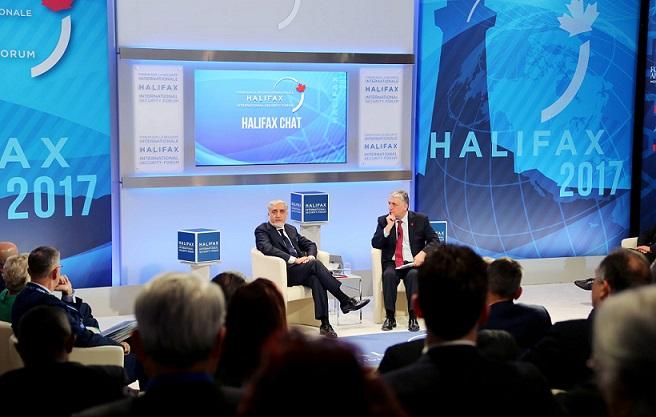Abdullah, who visited Halifax this weekend for the annual Halifax International Security Forum, said the Afghan government believes a settlement likely depends on bringing the Taliban into negotiations.
“Absolutely. The door is open,” said Abdullah. “[Our] national unity government … has shown its willingness to try to convince them to come to the table.
“If the Taliban opt for the political process … I think people will welcome that,” he said. Abdullah said he doesn’t think most Afghans would vote for a Taliban party, however. “I am pretty confident people will reject their ideas.”
However, a US watchdog agency recently reported increase in the amount of territory the Taliban control or have influence over in the past six months.
Abdullah took pains to emphasize that the sacrifice of Canada and other western nations over the past 15 years has not been in vain.
More than 3,400 Americans and other foreigners lost their lives in Afghanistan since 2001, when the United States invaded to topple the Taliban from power.
By the time Canada’s combat operations in Afghanistan ended in 2011, 158 Canadian soldiers, one diplomat and one journalist had been killed. Canada continued to train Afghan soldiers until 2014.
“You made sacrifices alongside our blood and treasure and that role is recognized and appreciated and we are grateful,” the Afghan official said in an interview.
The challenge is to convince the Taliban and other extremist groups, including Islamic State, that they cannot retake Afghanistan by force.
“If the forces fighting against the government feel they can win militarily, it will be very difficult to convince them. First you need to convince them on the ground that they cannot win militarily,” Abdullah said.
This is more difficult with most foreign troops gone but Abdullah welcomed US President Donald Trump’s recent decision to boost soldier deployments to Afghanistan.
The Washington Post reported in August that the United States was sending 4,000 more soldiers on top of the 8,500 already here.
Abdullah said the situation – while far from ideal – is better than what the Taliban had hoped.
“They had hoped with the 2014 [foreign troop] withdrawal they might come in full force back, which is not what had happened,” the CEO said, adding that Kabul is working to expand the size of its special forces and air force in order to bolster its control over Afghanistan.
Asked whether Canada should once again deploy troops to Afghanistan, Abdullah didn’t directly answer but instead thanked Ottawa for other forms of aid it supplies.
In 2016, Prime Minister Justin Trudeau’s government committed $465-million over three years to Afghanistan, much of it for aid projects.
Abdullah certainly wants cash and other military resources, warning that Afghanistan could grow as a source of extremism if jihadist groups such as Islamic State or the Taliban or al-Qaeda gain more ground.
“There is a collective responsibility,” he said. “What do you do with them? Let them develop? In the same way, over the nineties the world overlooked Al Qaeda, and that helped them to expand and inflict casualties like the ones in 9/11,” he said.
Abdullah said the ability of Taliban forces to take safe haven in neighbouring Pakistan must also be tackled.
He said measures Afghanistan is taking to fight corruption will fix the problem. “No country can tolerate or look the other way,” Abdullah said.
ma








GET IN TOUCH
NEWSLETTER
SUGGEST A STORY
PAJHWOK MOBILE APP